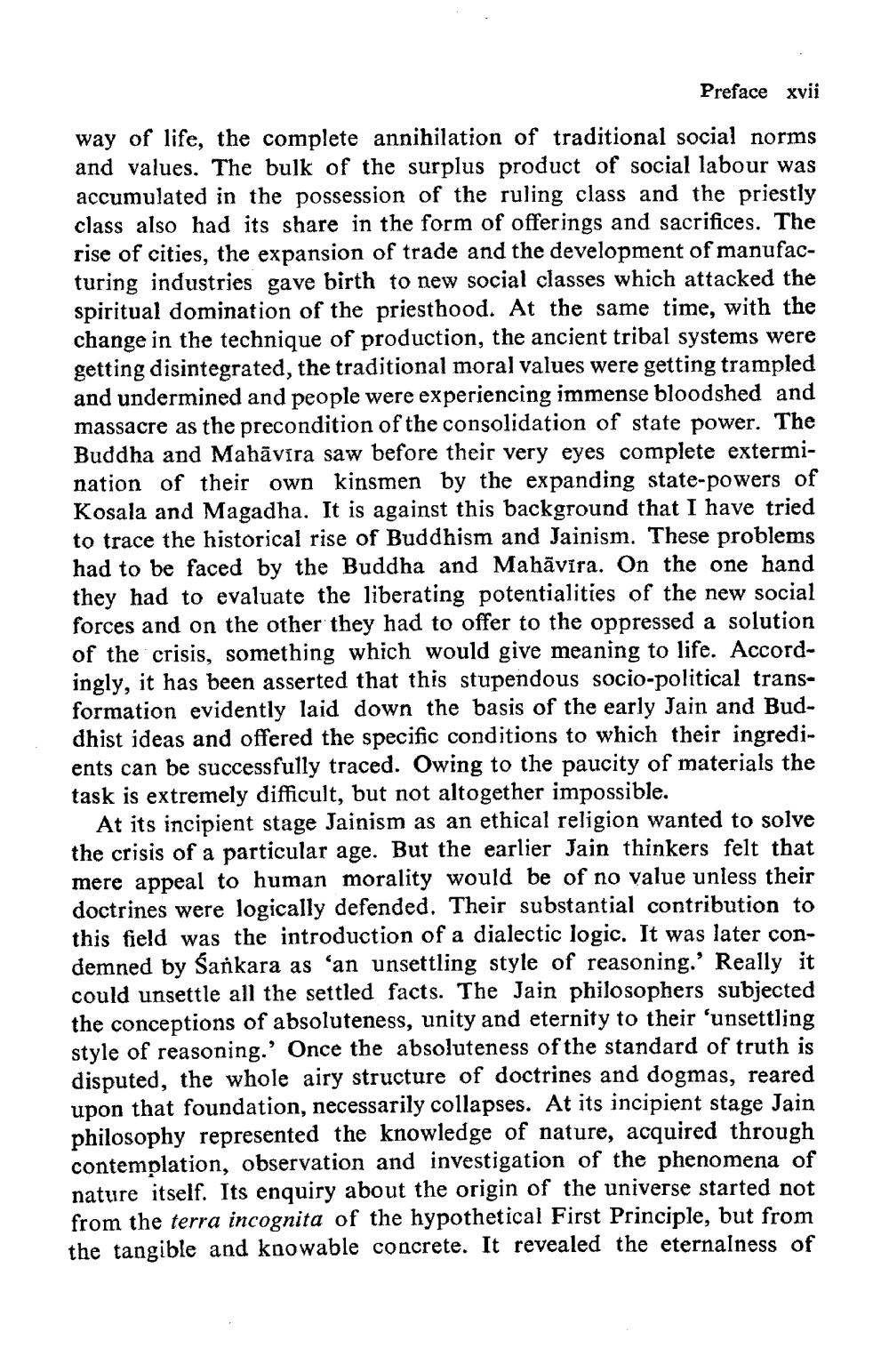________________
Preface xvii
way of life, the complete annihilation of traditional social norms and values. The bulk of the surplus product of social labour was accumulated in the possession of the ruling class and the priestly class also had its share in the form of offerings and sacrifices. The rise of cities, the expansion of trade and the development of manufacturing industries gave birth to new social classes which attacked the spiritual domination of the priesthood. At the same time, with the change in the technique of production, the ancient tribal systems were getting disintegrated, the traditional moral values were getting trampled and undermined and people were experiencing immense bloodshed and massacre as the precondition of the consolidation of state power. The Buddha and Mahavira saw before their very eyes complete extermination of their own kinsmen by the expanding state-powers of Kosala and Magadha. It is against this background that I have tried to trace the historical rise of Buddhism and Jainism. These problems had to be faced by the Buddha and Mahavira. On the one hand they had to evaluate the liberating potentialities of the new social forces and on the other they had to offer to the oppressed a solution of the crisis, something which would give meaning to life. Accordingly, it has been asserted that this stupendous socio-political transformation evidently laid down the basis of the early Jain and Buddhist ideas and offered the specific conditions to which their ingredients can be successfully traced. Owing to the paucity of materials the task is extremely difficult, but not altogether impossible.
At its incipient stage Jainism as an ethical religion wanted to solve the crisis of a particular age. But the earlier Jain thinkers felt that mere appeal to human morality would be of no value unless their doctrines were logically defended. Their substantial contribution to this field was the introduction of a dialectic logic. It was later condemned by Sankara as 'an unsettling style of reasoning.' Really it could unsettle all the settled facts. The Jain philosophers subjected the conceptions of absoluteness, unity and eternity to their 'unsettling style of reasoning.' Once the absoluteness of the standard of truth is disputed, the whole airy structure of doctrines and dogmas, reared upon that foundation, necessarily collapses. At its incipient stage Jain philosophy represented the knowledge of nature, acquired through contemplation, observation and investigation of the phenomena of nature itself. Its enquiry about the origin of the universe started not from the terra incognita of the hypothetical First Principle, but from the tangible and knowable concrete. It revealed the eternalness of




